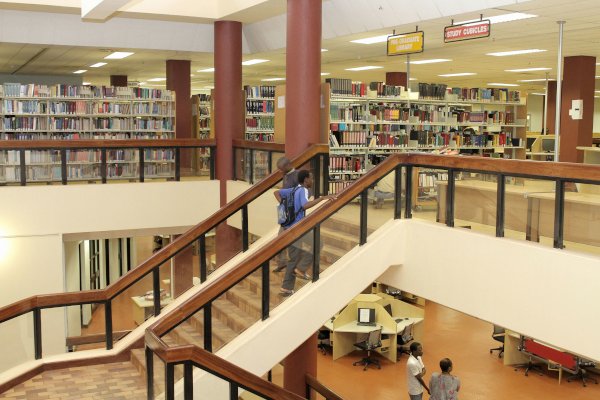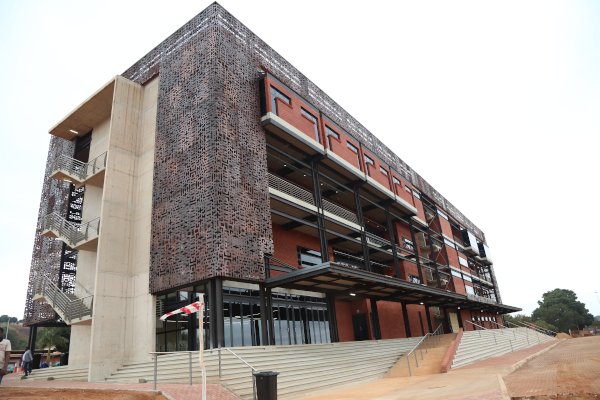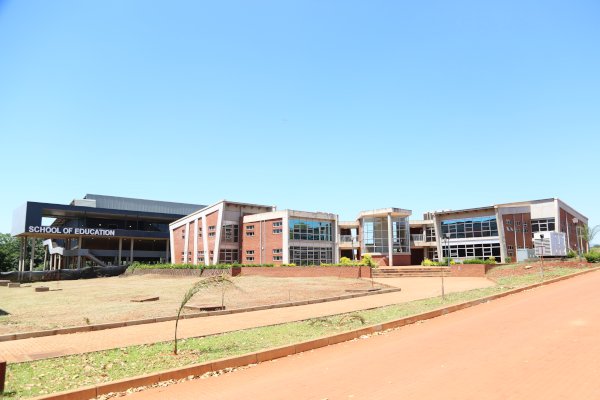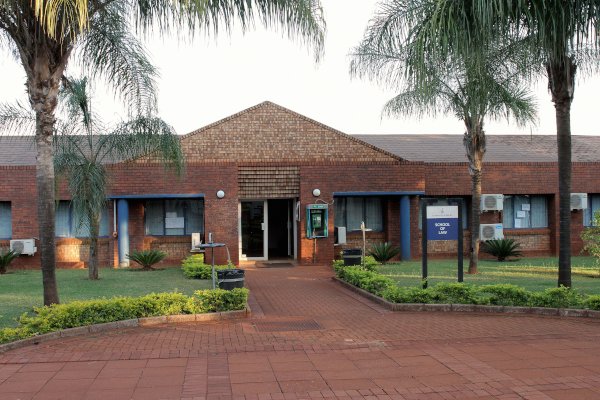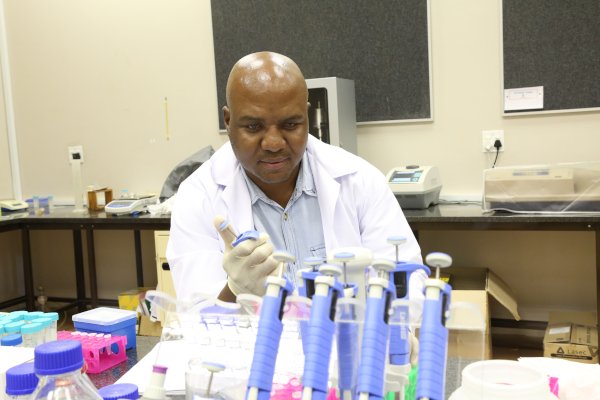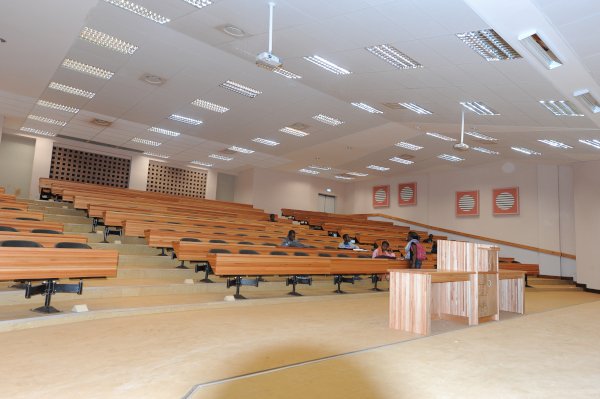Welcome to the University of Venda Institutional Repository, an open digital archive of the research output of the University of Venda. Univen IR contains theses and dissertations, research papers as well as conference papers. For further information and assistance please contact Mr Keith Malabi at +27 15 9628564 or +27 15 962 8314 during office hours
Most Viewed Items
Views
3175
1351
1137
990
763
633
617
610
567
556
Most Downloaded Items
Downloads
9482
8649
5038
4141
3919
3146
3019
2727
2599
2569
Recent Submissions
Empowering Informal Traders through Developmental Local Government: The Case of Polokwane Local Municipality
(2025-05-16) Selepe, Modupi; Vermaak, N. J.; Nkuna, N.
South Africa’s democratic dispensation brought hope and trust to oppressed black citizens, particularly the promise of economic emancipation and freedom, as highlighted in the ruling party’s manifestos and the Freedom Charter. However, post-democracy challenges such as unemployment, poverty, marginalisation, and lack of social security have led to an increasing number of informal traders operating within areas managed by local municipalities since the introduction of developmental local government. Consequently, informal trading has gained significant momentum and reshaped urban landscapes, both locally and globally. The South African Local Government Association (SALGA) introduced the concept of Developmental Local Government (DLG), mandating municipalities to collaborate with communities to promote economic development, including informal traders. This study aimed to develop an informal trader empowerment model/framework. The Dualist Theory of the informal economy was adopted, which posits that individuals participate in the informal economy due to socio-economic factors such as poverty, unemployment, and marginalisation. This theory was validated through findings indicating that participants engaged in informal trading for survival. A mixed-method research approach was utilised, with an anti-positivist/interpretivist paradigm guiding the study. The research focused on Polokwane’s informal traders and the Polokwane Local Municipality. Non-probability sampling techniques, including convenience and purposive sampling, were employed to collect data from a total of 70 participants—50 informal traders and 20 municipal officials. Data collection involved focus group interviews to address time constraints and Covid-19 restrictions, with Personal Protective Equipment (PPE) ensuring safety. Data analysis primarily involved thematic analysis, complemented by the Statistical Package for Social Sciences (SPSS) and Microsoft Excel for quantitative enumeration. Ethical standards were rigorously adhered to, ensuring anonymity, protection from harm, voluntary participation, and securing permission from gatekeepers.
The pharmacogenetics and pharmacokinetics of ADME polymorphisms in-drug-sensitive and drug-resistant tuberculosis patients from rural healthcare facilities in the Vhembe District of Limpopo (South Africa)
(2025-09-05) Mashilo, Maphepele Sara; Traore, A. N.; Potgieter, N.; Kinnear, C. J.
BACKGROUND
Tuberculosis (TB) is the second leading cause of death after the recent Coronavirus (COVID-19) pandemic. The rate of TB mortality remains high due to the emergence and spread of drug-resistant TB (DR-TB), which includes multidrug-resistant (MDR) and extensively drug-resistant (XDR) TB. Although TB is curable, the most common side effect associated with the use of anti-TB drugs globally is hepatotoxicity. This observation has been associated with the host genetic variation in the genes involved in drug absorption, distribution, metabolism, and excretion (ADME). The African population has been reported to have a high genetic diversity, yet their genomic information on the genetic contribution to TB and treatment is understudied.
AIM OF THE STUDY
This study sought to investigate the pharmacogenetic analysis of ADME polymorphisms in TB patients from rural healthcare facilities in the Vhembe District, Limpopo province of South Africa.
METHODOLOGY
Thirty-five TB outpatients were recruited from various healthcare facilities in Vhembe District. In this study, data and samples were collected from August 2022 to December 2023. Interviews were conducted to collect socio-demographic information and other factors related to TB, and samples (Sputum, urine, and blood) of the participants. DNA isolated from sputum was used to confirm (Anyplex MTB/NTM) and determine the extent of the MDR/XDR-TB using Allplex™ MTB/MDR/XDRe kit from Seegene, and the Zymo kit was used for blood DNA extraction. The whole genome sequencing was achieved by Next-generation sequencing (NGS) technique to analyse the SNPs involved in drug ADME to understand the risk associated with treatment failures and
predisposition to anti-TB induced toxicity on only seven genomic DNA (gDNA) samples, and untargeted metabolomics were used to evaluate the metabolites in the urine of the TB/MDR-TB patients.
RESULTS
Among the 35 participants, 54,3% (19/35) were females. The ages of the participants ranged from 23 to 72 years. The estimated prevalence of DR-MTB was 11.4% (4/35). Unemployment constituted 65% (23/35) of the participants’ status. Fifty-one percent (18/35) of the patients were co-infected with HIV. In total, the co-infections included MTB+NTM (40%, 14/35), MDR-MTB+NTM (5,7%, 2/35), XDR-MTB+NTM (2,9%, 1/35) and XDR-MTB+HIV (2.9%, 1/35). ANOVA analysis across groups identified 42 significantly altered metabolites (p < 0.05), where 2149 were annotated from a spectrum of 4191. The metabolomics resulted in 5 pathways, including i) One carbon pool by folate, ii) Folate biosynthesis, iii) Sphingolipid metabolism, iv) Tryptophan metabolism, and v) Fatty acid biosynthesis. Pharmacogenomics revealed a high prevalence of variants in UGT1A9 (94), ABCB1 (88), SLCO1B1 (69) and CYP24A1 (49) genes affecting drug metabolism and transport. NAT2 genotyping predicted diverse acetylator phenotypes with slow and intermediate acetylators predominating, suggesting variable isoniazid metabolism and potential differences in treatment efficacy and toxicity risk.
CONCLUSION
The study's findings underscore the urgent need for targeted strategies in addressing MTB and DR-TB. The high prevalence of co-infection, particularly NTM+DR-MTB, and HIV+DR-MTB should be a primary focus in MTB control in the Vhembe district. The significant proportion of unemployment among TB patients and late healthcare consultation were identified as key risk factors. Strategies should prioritise education on TB co-infection diagnosis/ treatment and address unemployment, as these are crucial areas where interventions can significantly impact the health of the individuals and the overall public health in this region. Integration of metabolomic and genetic analyses highlights complex host-pathogen interactions in DS-TB and DR-TB, underscoring metabolic pathway disruptions and genetic polymorphisms that influence
drug response. Therefore, this initiative is crucial for assessing the likelihood of drug resistance, toxicity, and treatment failure. Therefore, these findings emphasize the need for personalised medicine approaches to optimize anti-TB therapy in genetically diverse populations, thus preventing individuals predisposed to ADR attributable to anti-TB drugs. Further validation and functional studies are warranted to translate these insights into clinical practice.
Sedimentological and mineralogical characteristics of Limpopo River Sand at Beit Bridge Border between South Africa and Zimbabwe
(2025-09-05) Ramavhunga, Mukondeleli; Odhiambo, Beneath; Kori, Edmore
The research aimed to investigate the sedimentological and mineralogical characteristics of Limpopo River sand upstream of Beit Bridge, situated on the South Africa/Zimbabwe border. Due to limited information available about the minerals and sediments associated with Beit Bridge, this study was conducted to fill this knowledge gap and enhance knowledge of the river’s history and environmental changes. Samples of sediment representing the river were collected from upstream of Beit Bridge along the Limpopo River. The sieve analysis technique was used to classify the particle size of the samples. The X-ray Diffractometer (XRD) analysis identified mineral composition, detecting quartz, feldspar, and other minerals. The petrographic analysis offered detailed mineral component observations, confirming XRD findings. Subsequently the X-ray fluorescence (XRF) analysis traced sediment provenance by identifying specific elements and compounds, illuminating geological history.
The results showed that sand was the most dominant component across all stations, with varying proportions of fine silt and gravel. XRD and microscopic analysis revealed minerals such as quartz, plagioclase, microcline, muscovite, and actinolite to be dominant. The prevalence of quartz suggests a quartz-rich source, while plagioclase indicates a predominance of igneous and metamorphic rocks in the local geological formations. The geochemical analysis indicated intense weathering, as evidenced by the high concentration of SiO2 in the sediments. The SiO2/Al2O3 ratio suggests significant leaching processes. Enrichment of Large Ion Lithophile Elements (LILE) in the sediments indicates a provenance from the subduction zone's geochemical region. The Al2O3/TiO2 ratio reflects diverse sources, including basic and ultrabasic plutonic protoliths. These geochemical insights contribute to understanding the area's geological history and mineral resource potential, guiding future exploration and exploitation efforts.
The research successfully determined the sedimentological and mineralogical characteristics of the Limpopo River sand upstream of Beit Bridge. The combination of sieve analysis, XRD analysis, petrographic analysis, and XRF analysis yielded valuable insights into the historical transformations in the river's surroundings and the geological mechanisms that influenced the terrain in the examined area.
Formulation and nutrient composition of ready-to-use therapeutic food with Glycine max, Vigna subterranea, Sorghum bicolor and Moringa oleifera leaf as micronutrient premix
(2025-09-05) Akinmoladun, Oluwaseun Funmi; Nesamvuni, C. N.; Jideani, V. A.
The growing population number of malnourished under-five children across the globe requires immediate nutritional intervention. The standard peanut- and milk-based ready-to-use therapeutic food (RUTF) commonly deployed for managing severe acute malnutrition is expensive and not easily accessible in the rural areas where it is needed most. However, this intervention should be cheap, readily accessible, nutritionally dense, have an extended shelf life, and not require further preparation. Therefore, the study aimed to formulate and profile the nutritional content of a ready-to-use therapeutic food with Glycine max, Vigna subterranea, Sorghum bicolor, and Moringa oleifera (MO) leaf powder as a micronutrient premix. The objectives were firstly to develop a ready-to-use therapeutic food from local base ingredients, including Sorghum, Bambara groundnut, soybean, and Moringa oleifera leaf powdered (MOLP) micronutrient premix with the aid of linear programming (LP) tool. Secondly, the study investigated the acceptability of the developed RUTFs, including colour (L*, a*, b*, H*, C*) measurements and focus group discussion by mothers and caregivers. It also evaluated the nutritional profile, including the proximate, antinutrient, minerals, and microbial assessment of the newly developed and/or formulated RUTFs, as the third objective. The final objective assessed the in vitro digestibility, including protein, starch, and amino acid profile of the formulated RUTFs. In the first objective, six RUTFs, based on different combinations of each of the base ingredients, were generated by LP: soybean (11.73%, 14.25%, 20%, 25.34%, 22.88%, 20%), Sorghum (29.11%, 28.93%, 24.35%, 15%, 15%, 21.66%), Bambara groundnut (15%, 10%, 10%, 10%, 15%, 15%), vegetable oil (27.11%, 26.82%, 25.64%, 26.66%, 27.12%, 25.34%) and sugar (17%, 20%, 20%, 23%, 20%, 18%). Eighteen RUTFs were produced, where each RUTF was composited with the three levels of micronutrient premix (3% MOLP alone, 3% standard RUTF alone, and a mixture of MOLP and standard RUTF at 1.5% each). Following proximate analysis, eight of the eighteen RUTFs met the minimum requirements for protein (14-16%) and energy (520-550 kcal) and were selected for pre-sensory analysis. Based on the overall acceptability score from the pre-sensory trial, five (RUTFs 1,2,3,4 and 5) of the eight RUTFs were rated higher and selected for further analysis and of nutrient composition in subsequent chapters. In objective two, the sensory analysis revealed that RUTFs 3 and 4 were highest (p<0.05) in appearance and aroma, while RUTFs 2 and 4 were highest (p<0.05) in taste and texture. The colour attributes revealed L*, a* and b* to be highest (p<0.05) in RUTF 3 and decrease through RUTFs 4 and 5 to RUTFs 1 and 2. Some of the comments by the caregivers and nursing mothers involved in the acceptability trial include, 'I would buy it if it were affordable, and I do not have a problem with the colour; after all, we all eat vegetables'. Regarding their RUTF knowledge, the comment was, 'They are used for children who are not well nourished, especially underweight'. In chapter five, the proximate analysis revealed that all
the RUTFs have similar moisture and fibre content. While RUTFs 1,2,3 and 5 had identical crude protein and energy, RUTF 5 had the highest (p<0.05) crude fat. RUTF 3 had the highest (p<0.05) in most macro and micro minerals. This was closely followed by RUTFs 5,4,1 and 2. While aflatoxin remains undetected in all the RUTFs, RUTFs 3 and 4 had a much higher (p<0.05) phytate and trypsin than other RUTFs. The microbial assessment revealed 'no growth' for mould, E. coli, and Staphylococcus aureus, while 'absent' was reported for Listeria monocytogenes. Other microbial loads had <10 counts. In the final objective, the predicted that glycaemic index was similar for the five RUTFs. However, RUTFs 2 and 4 had the highest (p<0.05) but similar hydrolysis index and in vitro protein digestibility. The total essential amino acids were similar in RUTFs 1,3 and 5. The study showed that LP can be used to develop ready-to-use therapeutic food with a nutritional composition comparable to the WHO standard RUTF. Based on the ease of acceptability and mineral profile, RUTF 3, formulated with standard RUTF, seems the best. Closely followed are either RUTF 4 or 5. In conclusion, even though these RUTFs are yet to be clinically tested, developing a ready-to-use therapeutic food from Sorghum, Bambara groundnut, and soybean with MOLP could provide easily accessible but nutrient-dense nutrition therapy for managing severe acute malnutrition in children under five. Ethics were considered for the acceptability study. The University of Venda Research Ethics Committee granted certification.
Phytoremediation of metals from Klein Letabs Gold Mine Tailings, Limpopo Province, South Africa
(2025-09-05) Munyai, Phumudzo Gift; Mundalamo, H. R.; Ogola, J. S.
Phytoremediation is an environmentally friendly technique that uses green plants to reduce, remove or extract environmental toxins, primarily those of anthropogenic origin, to restore sites to a condition suitable for private or public use. Its efforts have largely focused on the use of plants to accelerate the degradation of organic contaminants with root rhizosphere microorganisms or remove hazardous metals from the soils and water. Phytoremediation of contaminated sites is relatively inexpensive and aesthetically pleasing to the public compared to alternate remediation strategies which involve excavation or chemical in-situ stabilization. The Giyani Greenstone Belt is known for its gold mineralisation, and has been exploited at Klein Letaba, Louis Moore, Birthday, Golden Osprey and Fumani mines. All these mines are closed but the metals within their respective tailing’s dams can cause environmental and health problems. This study focuses on the Klein Letaba Tailings Dam which has metals such as Lead (Pb), Zinc (Zn), Copper (Cu), Arsenic (As), Nickel (Ni) and Cadmium (Cd) and traces of Gold (Au), which pose significant risks due to historical mining activities.
Fieldwork involved geobotanical mapping, geochemical surveys, and pot culture experimental design. A total of 80 plants and tailings samples were randomly collected due to their dominance and abundance on the tailings dam. Tailings samples were collected at the same location as the plant samples. The samples were analysed at the University of Venda, Department of Earth Sciences, Faculty of Science, Engineering and Agriculture and Madzivhandila College of Agriculture. Pot-culture experimental design setup was conducted to evaluate the growth rate and metal uptake and accumulation by hyperaccumulating plant species at the South African National Biodiversity Institute (Thohoyandou Botanical Garden Nursery). The setup involved the use of 14 flower trays. This was done to mimic the Klein Letaba tailings natural environment. The duration of the experiment varied with the growth rate of the different plant species with an estimated period of 7 months for all plants followed by harvesting for four months.
Metal concentrations of the plants and tailings were determined using inductively coupled plasma-optical emissions spectrometry (ICP-OES). Geochemical data analysis was done using Microsoft Excel, Arc GIS and Simple Kriging (SK) software to evaluate the metal distribution and plant metal uptake potential on different parts of the plant species at Klein Letaba tailings dam.
The study identified three dominant native plant species: Combretum imberbe, Cynodon dactylon and Sporobolus africanus, which are naturally adapted to the tailings dam. Results revealed significant metal uptake, particularly in the roots of Combretum imberbe (CI), and Sporobolus africanus (SA). The metal concentrations of Pb, Ni, As, Cr, Zn and Cu in the tailings dam were found to be high, with a maximum of 11886 ppm, 2049 ppm, 1276 ppm, 1271 ppm, 695 ppm and 140 ppm respectively.
The pot-culture experimental set-up constituted 4 harvests where Combretum imberbe demonstrated metal uptake for Cu, Pb and Zn, with concentrations in roots exceeding 7 ppm for Cu and 6 ppm for Pb. Sporobolus africanus showed notable accumulation of Cr, As and Pb with concentrations of 7.8 ppm, 6.6 ppm and 6.5 ppm respectively. Metal uptake was generally higher in the roots compared to the shoot and leaves, indicating that this species primarily acts as a stabiliser rather than a translocator of metals.
The potential economic recoverability of metals from native plant species, such as Combretum imberbe, Sporobolus africanus, and Cynodon dactylon, was reviewed. The study identified Combretum imberbe as the most promising phytoremediator, recording high Zn, Fe and Cu uptake in the leaves and shoots, indicating potential for above-ground harvesting. Accumulation of Cu (~5 ppm), Zn (~8 ppm), and Fe (~10 ppm) make it viable for extracting economically valuable metals making it a potential candidate for phytomining. Combretum imberbe and Sporobolus africanus exhibited complementary potential for Zn recovery and stabilisation of Mn and Fe. Furthermore, the low concentrations of Cd and As uptake across all species suggest limited risk of secondary environmental contamination. Metals like Pb, Cu, Ni, Zn and Cd are economically valuable due to their market demand and can also be extracted by environmental remediation. Lead, for example, is currently valued at about $1.95 per kilogram, copper, $4.83 per kilogram, nickel, $7.11 per kilogram, manganese $1.55 per kilogram and zinc, $2.82 per kilogram.
This research highlights the potential of native plant species to remediate and stabilise tailings environments while offering economically viable solutions through recovery of valuable metals. This environmentally friendly remediation strategy aligns with the global sustainability goals, fostering safer ecosystems and providing opportunities for rehabilitated land use in mining affected areas. Therefore, this remediation strategy is not only applicable in the studied site but can also be applied in other similar studies.
